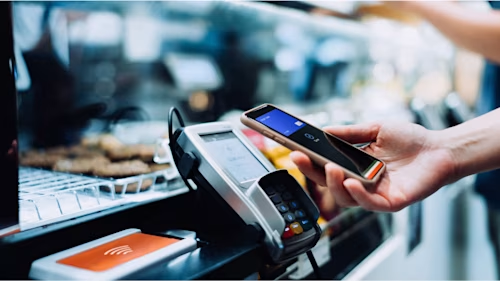How to get a document notarised in the UK

In this article, we examine the benefits of using a digital wallet and how a wallet can provide added convenience when making payments, managing expenses and tracking finances.

What is a digital wallet, and how do you use one? In simple terms, a digital wallet works as a virtual version of a real-life physical wallet. Users can make purchases and transfer money without using a card or cash. A digital wallet can store payment information for multiple financial institutions, store cards, and, in some cases, can also act as a digital identity wallet and store your driving licence or similar.
Digital wallets transmit payment data securely from your device. The card information you’ve stored is transmitted to the point-of-sale terminal, which can, in turn, process payments. Digital wallets are predominantly used on mobile devices. Paypal and Apple Pay are the most popular digital wallets for transactions in the UK. According to a report by eMarketer, more than 63.7% of adults in the UK used a digital wallet in August 2023.
A digital wallet removes the need to carry many separate store cards, making paying more convenient. You just need to remember your mobile. In addition, payments can be quicker, and you are less likely to lose a card. You can pay for things without carrying your physical debit or credit card—simply tap your phone for ease.
Having a digital wallet can add an extra layer of security. Data is encrypted, and you may have to use a fingerprint, code, or facial recognition to pay.
You will usually have access to a list of transactions to track your spending easily.
Digital wallets can integrate with store loyalty programmes, so you do not have to store all those cards separately.
Digital wallets can contribute to environmental sustainability by promoting paperless billing and receipts.
Digital wallets can provide accessible financial services - helping many who may otherwise be excluded from traditional banking. Digital payments accelerate financial inclusion as they offer marginalised populations a route to pay.
It is worth noting that some merchants don’t yet accept digital wallets, and you should always keep your phone charged to access your digital wallet. Overall, digital wallets are a streamlined way of storing payment information and completing in-store and online transactions.
Most digital wallets allow you to track your transaction history and spending, helping customers manage their spending more effectively. You can also sort your transactions into different categories to help you understand where your money is spent. Using your digital wallet, you can also integrate loyalty programmes to ease the collection of rewards.
Some wallets, like Google Pay, offer peer-to-peer transfer payments, which make it easier to split a bill with friends or send monetary gifts to friends and family. Customers can also share money across international borders with just a few clicks, removing all of the hassle of traditional payment methods.
Data breaches, cybersecurity, and hacking prevention remain a concern for digital wallet users, and the loss of mobile devices is also an issue. Despite this, digital wallets offer protection as they use encryption technology to protect your data and personal information. Taking extra precautions, like using stronger passwords and monitoring your accounts often, can help protect your money and private data. If your phone has biometric protection such as fingerprint or facial recognition, it enhances security further. In addition, others use tracking software to track their mobiles if lost and can disable financial information if they lose their phone.
A digital identity wallet is a virtual wallet that allows you to manage, store, and share digital identification documents similarly to how you share payment information. EU Digital Identity Wallets have been created to provide a safe, reliable and private means of digital identification. In the UK, the government is also working to ensure people can securely prove who they are without presenting physical documents. The Docusign Identity Wallet for Qualified Electronic Signature is a Docusign feature that will help signers sign QES even faster. After completing the identity verification process, repeat signers can create an Identity Wallet to streamline the agreement process. Signers without an Identity Wallet created are asked to perform three simple steps on their preferred mobile device: taking a photo of their ID document, taking a video, and engaging in recorded moments. Find out more about AI-based ID Verification with Docusign.

Demand and Content Marketing Manager EMEA || Docusign
Related posts






